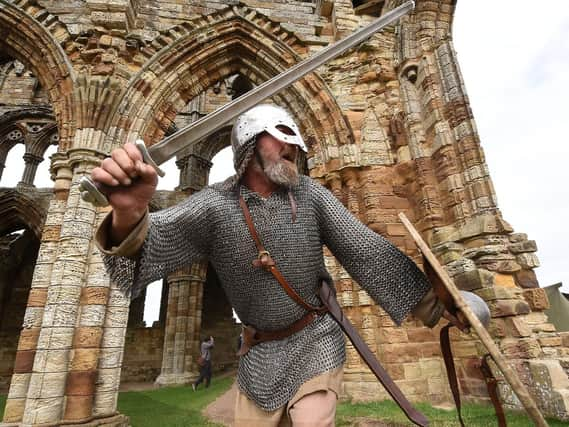Name game reveals city origins


The name Sheffield may for some conjure images of industrial landscapes, the notorious Park Hill estate or even unemployed steelworkers turning to stripping to make a living, but what does it really mean?
Concealed for much of its course under the city and polluted by centuries of steel production, it is in fact the River Sheaf that lends Sheffield its name.
Advertisement
Hide AdAdvertisement
Hide AdDerived from the Anglo-Saxon word for '˜divide', it is combined with '˜field' denoting a forest clearing, giving Sheffield the not so poetic meaning of forest clearing by the dividing river.
The people who named Sheffield and first settled it were the Anglo-Saxons who invaded Britain during the 5th century AD after the Romans had packed up. Far from integrating themselves with locals, the Anglo-Saxons killed them, stole their land and somewhat ironically labelled them foreigners, or as we say in English, '˜Welsh'.
This helps to explain why in a village just south of Rotherham everyone is Welsh despite being English. The village of Wales probably served as a last redoubt for besieged Britons.
Another group to throw into the mix of Angles, Saxons and Welsh would be the Vikings. The ominously-named Viking '˜Great Heathen Army' invaded the Kingdom of Northumbria, of which Sheffield was a part, in around 865AD and almost conquered all of England.
Advertisement
Hide AdAdvertisement
Hide AdPopularly imagined as horn-helmeted berserkers and rapacious raiders, the Vikings forgot that they should never bite the hand that writes about them '“ defenceless monks who wrote history books about them, understandably unsympathetically.
Anyone living in Netherthorpe, Upperthorpe or any area whose name ends with '˜thorpe' is on top of a Viking farming settlement.
Sheffield was the setting for some of the most significant but largely forgotten events in English history.
In 829, before the Viking invasion, the King of Northumbria pledged his allegiance to King Egbert of Wessex in the suburb of Dore, creating for the first time a unified English nation along the same boundaries we would recognise today.
Advertisement
Hide AdAdvertisement
Hide AdIn 937 this English nation was solidified at the Battle of Brunanburh, somewhere between Tinsley and Brinsworth, where King Athelstan defeated a coalition of Vikings, Scots and Cumbrians hell bent on breaking his influence over the North.
The Anglo-Saxon creation of England would eventually draw hungry eyes from across the Channel, climaxing in the Norman Invasion in 1066 led by William the Conqueror.
The notion of an England, one that Sheffield was integral in creating, survived the invasion.
Â
Â
Â
Â
Â
Â
Â
Â
Â
Â